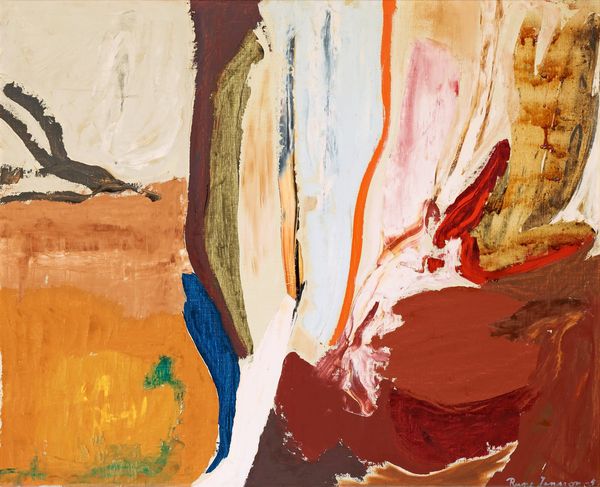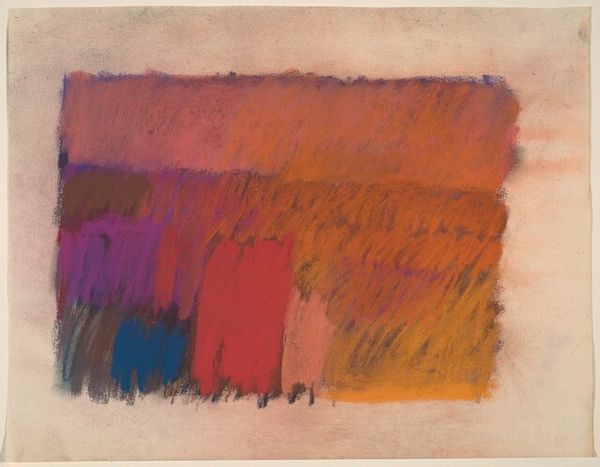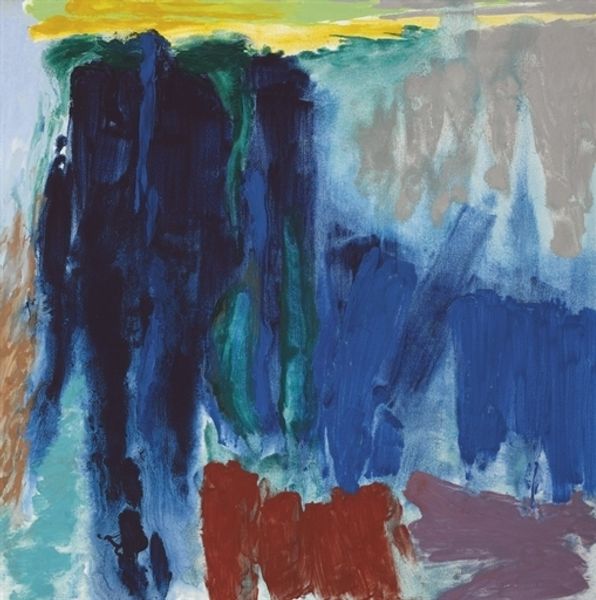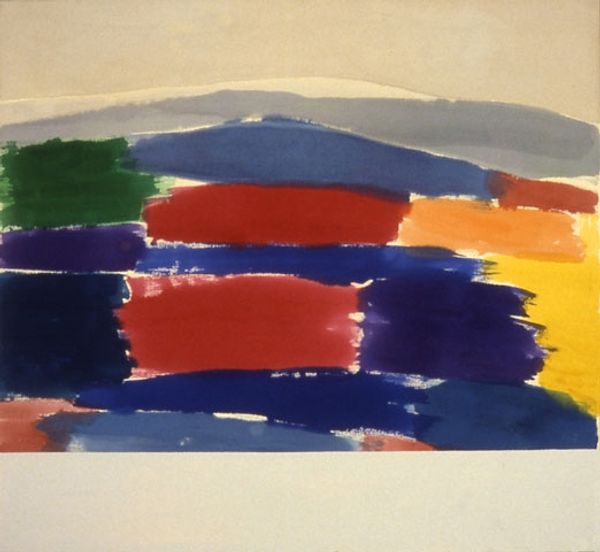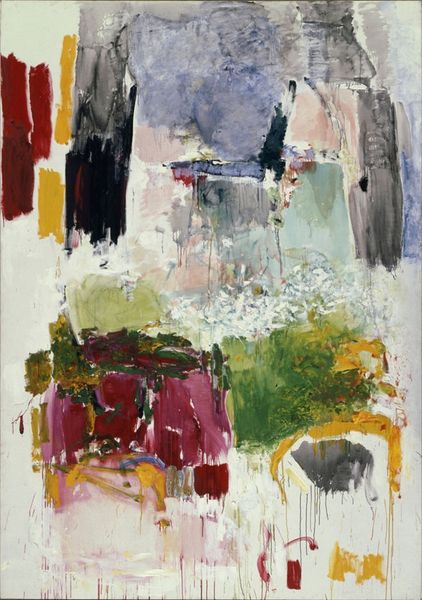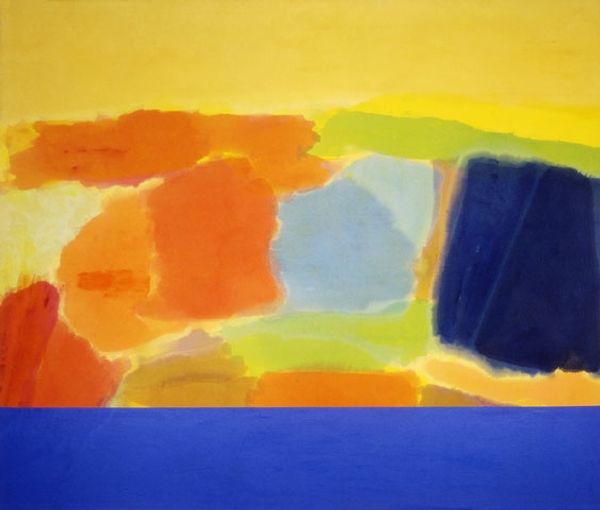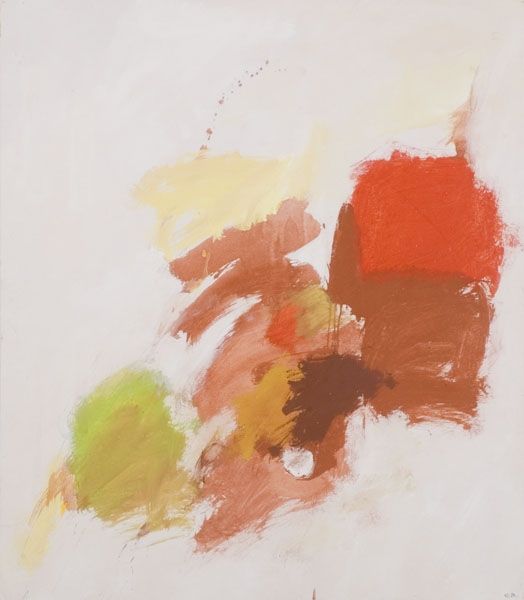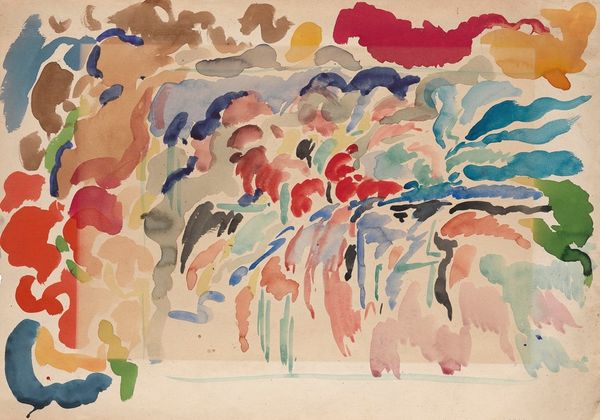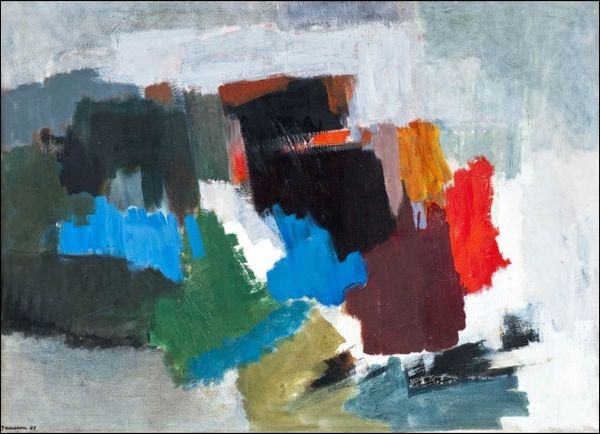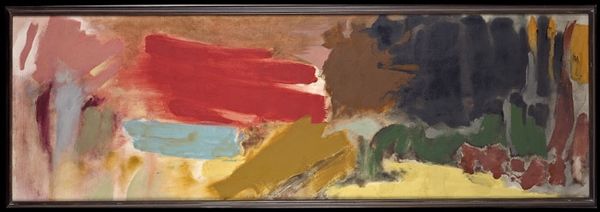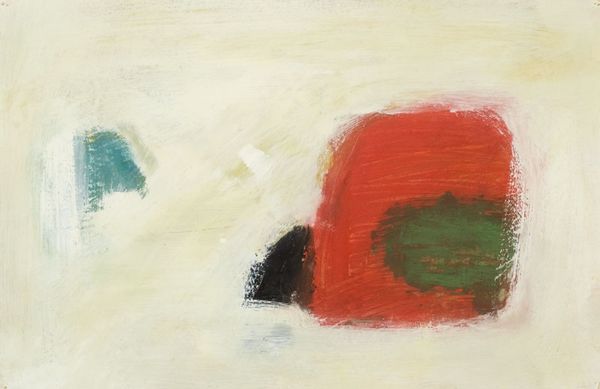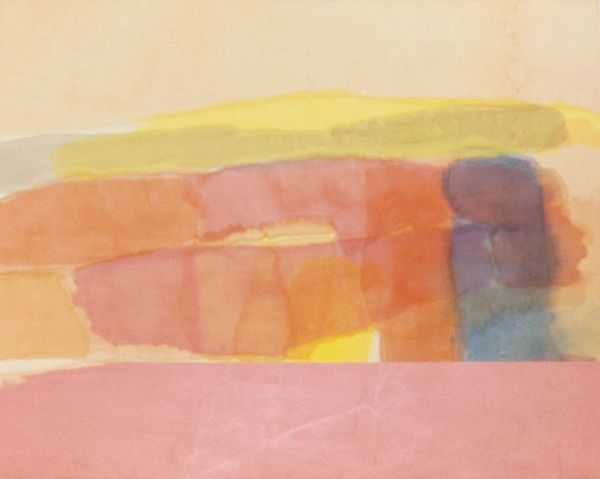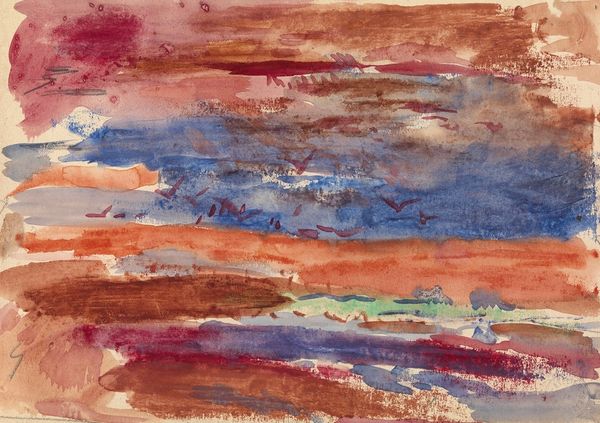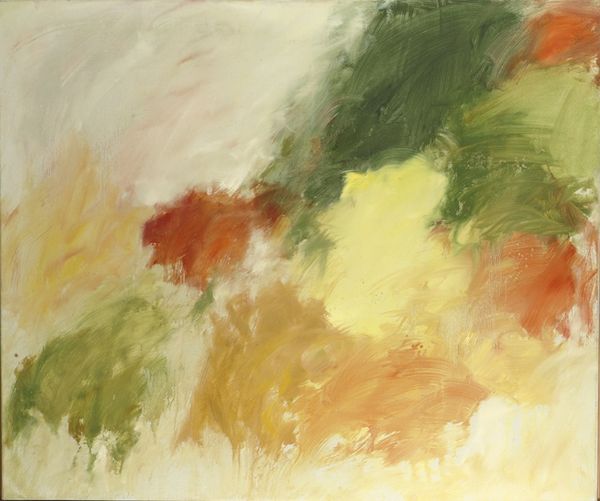
Copyright: Albert Irvin,Fair Use
Editor: Here we have Albert Irvin’s "Orlando," created in 1980, employing watercolour and impasto. The painting's abstract forms and washes of colour evoke a sense of energetic, almost chaotic freedom. What layers of historical and social context do you see at play in a work like this? Curator: Considering the time it was created, "Orlando" can be viewed through the lens of post-war artistic liberation, challenging conventional norms in its embrace of abstraction. Can you see how the energetic brushstrokes and non-representational forms defy expectations? In the context of the late 20th century, it moves us to ponder the shifts in societal and cultural perspectives, which encouraged expressions of individuality and breaking away from traditional roles, much like the protagonist in Virginia Woolf's *Orlando*. What connections might we draw between the artistic and the literary revolutions? Editor: That's a fascinating point. So the very act of abstracting, of moving away from representation, becomes a statement of freedom and individuality, mirroring shifts happening in broader society. But where does the personal voice of the artist fit within these huge societal trends? Curator: The artist's hand, technique, and lived experience inevitably shapes their creative work, so the dialogue with the social, political, and aesthetic contexts always gets filtered through individual subjectivity. Irvin’s unique application of colour and form tells a story about how his understanding of his cultural experience is synthesized in pigment and on canvas. It shows us how lived realities profoundly influence even the most abstract artistic choices. Does knowing that give you a new understanding of how social context shapes this artwork? Editor: Yes, it encourages me to consider art not as isolated objects, but as products of and responses to the world around them, filtered through the artist's unique perspective. I’ll never look at abstract art the same way again. Curator: Absolutely. Recognizing this complex interplay opens doors to a deeper understanding. Now it's your turn to educate me on your perspective!
Comments
No comments
Be the first to comment and join the conversation on the ultimate creative platform.
